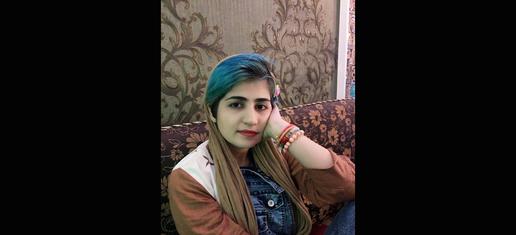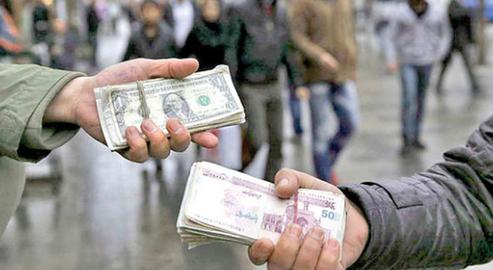On the evening of January 29, security forces stormed the home of Jafar Azimzadeh, secretary of the board of directors of Iran’s Free Labor Union, and arrested him and confiscated his laptop and mobile phone. Soon after, the union’s Telegram channel reported that Parvin Mohammadi, vice president of the union, had also been arrested. The reasons for their arrests remain unknown.
The detention of Mohammadi and Azimzadeh follow the re-arrest of strike leader Esmail Bakhshi and civil rights activist Sepideh Gholian 10 days previously. It was confirmed as recently as January 28 that the two remain in prison and have faced brutal treatment while in custody.
“Around 12 noon they brought a shackled Esmail out of the courthouse next to Dezful prison,” one eyewitness reported [Persian link]. It was the first news to emerge about the activist, who led the strike by workers for the Haft-Tappeh Sugarcane Company in the southwestern province of Khuzestan, in 10 days. “Three plainclothes agents and an agent of the riot police accompanied him and took him away in a white Peugeot Pars. [The area] around Esmail’s eyes were dark because, I think, he was suffering from sleep deprivation and fatigue.”
The eyewitness also reported that the court had reviewed the case for Bakhshi to be released on bail but the judge had rejected the reasons and amount put forward as insufficient. “It seems that Esmail Bakhshi’s family gave the court a property deed as collateral [for bail] but the court wants another deed worth at least 500 million tomans [close to $120,000],” said the witness. “Esmail’s family are trying to supply a second one.”
According to the eyewitness, besides binding his hands and feet in shackles — punishment usually handed down to dangerous criminals only — authorities had brought Bakhshi to the court in prison uniform “to destroy his morale.”
Quoting Bakhshi’s lawyer Farzaneh Zilabi, the Haft-Tappeh Sugarcane Company Labor Union reported that he had filed a complaint against Intelligence Bureau agents in Ahvaz, the capital of Khuzestan province, for torturing him. “After my client complained against Intelligence Bureau’s agents, he was arrested and was delivered to the Intelligence Bureau,” she said. “Now they have brought up a new charge against him.” What is more, she said, “the worker who witnessed the beating up of my client has also been detained by the Intelligence Bureau.”
“Bakhshi has not been released and is still in security detention although he has posted bail in the new case against him and had posted bail for the previous security case against him,” said Zilabi.
“This is all to destroy his morale, especially after they saw that broadcasting the documentary [of Bakhshi being forced to confess] did nothing for them,” a labor activist and a friend of Bakhshi and Ali Nejati, a member of the board of directors of Haft-Tappeh Labor Union, told IranWire. On January 19, Iranian state TV broadcast a 19-minute “documentary” that included footage of confessions by Bakhshi, Nejati and Sepideh Gholian, a student activist who has been jailed for supporting the striking workers. The footage was widely criticized on social media.
“Esmail’s friends and colleagues and the people did not stop supporting him," the activist said. "Even this week there was a sit-in inside the factory in support of Esmail Bakhshi, Ms. Sepideh Gholian and Ali Nejati. But the workers stayed inside and did not come out.”
On Tuesday, January 29, Haft-Tappeh Labor Union reported that Ali Nejati had been given a medical leave of absence after persistent demands from his family and after medical evidence was provided showing that he suffers from a heart problem that requires treatment outside the prison.
An informed source told IranWire that the prosecutor in Andimeshk, the city where Nejati was held, “did his best to prevent Nejati’s furlough,” adding that the prosecutor had come up with multiple excuses to prevent the activist from receiving urgent medical care. “His doctor confirmed that his life and his health were in danger if he remained in prison,” the source said. “According to the law, his case should have been sent for review to the medical examiner but the prosecutor refused to give him furlough and send [the case]. The excuse was that Nejati did not agree that he must be shackled [in order] to be allowed to go to a medical facility [outside the prison]. Eventually two of his colleagues put up their paychecks to guarantee his release.”
But, according to this source, the prosecutor has now changed his mind and will no longer accept paychecks from Haft-Tappeh workers as bail. He says the prosecutor will “only accept paychecks from bank or education ministry employees.”
The Haft-Tappeh Labor Union has repeatedly condemned the arrest of Ali Nejati and declared that it holds security and judiciary authorities accountable for his health. The union has demanded Nejati’s immediate and unconditional release so that he can be treated in a normal, adequate medical environment.
Arrest of Another Haft-Tappeh Worker
On January 26, Mohammad Khanifar, a Haft-Tappeh Sugarcane Company worker and a member of the company’s Islamic Workers Association, was also arrested. In a Telegram message, the Haft-Tappeh Labor Union questioned [Persian link] the reasons for his detention. “The arrest of Khanifar shows that even a worker who is a member of the Islamic Association is not immune to arrest, harassment and torment. The Islamic Workers Association’s goal is to control workers’ activities and to deny them their rights. If some thought that they would be protected from the judiciary and the security agencies by joining the Islamic Workers Association, they must now see that this is not the case. If a worker wants to pursue labor demands and rights, [these authorities] will throw him in jail. They have tormented, tortured and harassed Esmail Bakhshi and now they have arrested Khanifar, who was pursuing lawful workers’ demands.”
“We, the workers of Haft-Tappeh,” continued the Telegram message, “have no other way to pursue our demands — which include the payment of our unpaid wages, revoking the privatization [of the company], classification of jobs and the proper handling of labor contracts — except through our own independent organizations and representatives.”
Mehdi Gholian Released on Costly Bail
Mehdi Gholian, the brother of jailed activist Sepideh Gholian, was beaten and then arrested when security agents raided their home to arrest his sister. He has since been released on a bail of 100 million tomans, close to $24,000. “It was 7am when 12 male and two female agents entered our home and used violence,” their father Khoda Rahm Gholian told IranWire after the arrest. “They broke my son’s teeth and beat both my wife and me.” He said his wife sustained injuries when the agents held a knife to her throat. “They threatened to kill my daughter. Sepideh was screaming and her brother went to defend her. But they tied him up and threw him into the trunk [of the van]. They did not even allow him to change his clothes.”
Khoda Rahm Gholian said he had been extremely worried about the health of his children, and especially about Mehdi, who suffers from diabetes and other ailments.
“We have no idea where my daughter is or why my son was arrested,” he told IranWire after his son was released. “For the last 10 days we have not been able to eat or sleep. Now they have released Mehdi but Sepideh is still under arrest and we met with her last week for a few moments only.”
Jamal Heydari-Manesh, Sepideh Gholian’s lawyer, tweeted that judiciary officials in the city of Shush, where she is being held, have refused to work with him. “Today I arrived in Shush,” he reported. “I had to announce for the second time that I was her attorney on record. When I submitted a request to release her on bail, they refused to even register it. I insisted on meeting the prosecutor and when I asked to meet Sepideh, they rudely rejected my request.”
Protesting Steelworkers Released
“All arrested steelworkers in Khuzestan have been released on bail,” an informed source told IranWire. “But, up to this moment, their mobiles phones, which were confiscated, have not been returned to them.” The source also reported that a number of other steelworkers are being prosecuted, while several others have been suspended from their jobs. Although there have been meetings about reinstating them, judiciary officials and the employers have yet to agree. “Unfortunately, the judiciary has brought security charges such as ‘secessionism’ against them,” said the source. “This is all wrong. Our colleagues are only pursuing their lawful demands as workers.”
Behnam Ebrahimzadeh Still in Prison
Authorities arrested Behnam Ebrahimzadeh on December 12, 2018 in Tehran. A source close to the labor activist told IranWire that he has not been released — despite the bail set by the court being posted. “After his father Rahman Ebrahimzadeh protested in front of Tehran’s prosecutor’s office and the media reported the protest, Behnam phoned his family and told them that the prosecutor had set a bail amount of 200 million tomans [close to $48,000] for his release. Bail was posted 14 days ago but he is still under arrest.”
A trade union activist and member of the Society for the Protection of Child and Street Workers in Tehran, Ebrahimzadeh, 43, served seven years in prison after he was arrested at a Labor Day rally on May 1, 2010.
According to Article 1 of the UN Convention against Torture, “the term ‘torture’ means any act by which severe pain or suffering, whether physical or mental, is intentionally inflicted on a person for such purposes as obtaining from him or a third person information or a confession, punishing him for an act he or a third person has committed or is suspected of having committed, or intimidating or coercing him or a third person, or for any reason based on discrimination of any kind, when such pain or suffering is inflicted by or at the instigation of or with the consent or acquiescence of a public official or other person acting in an official capacity.”
Based on this definition, it is clear that the torture of workers, civil rights activists and their families continues in the Islamic Republic of Iran.
Related Coverage:
Agents Target Jailed Activist's Family in Brutal Attack, January 23, 2019
Iranian TV Airs Forced Confessions of Labor Activists, January 23, 2019
Rouhani Government to Sue Labor Leader for Torture Claims, January 9, 2019
Activist Challenges Intelligence Minister to TV Debate, January 4, 2019
Labor Protests and Arrests Continue, December 12, 2018
Crackdown on University Students for Supporting Striking Workers, December 10, 2018
Sugar Refinery Workers Face New Round of Harassment, December 5, 2018
Pro-Labor Student Protest Ends in Violence, December 5, 2018
Striking Steel Workers Tell Rouhani: "We Have Had it!", December 3, 2018
Arrest and Torture of Protesting Workers, November 29, 2018
The Rise and Fall of Haft-Tappeh Sugar Factory, November 22, 2018
The Plight of Iran’s Unpaid Workers, April 10, 2018
visit the accountability section
In this section of Iran Wire, you can contact the officials and launch your campaign for various problems




























comments